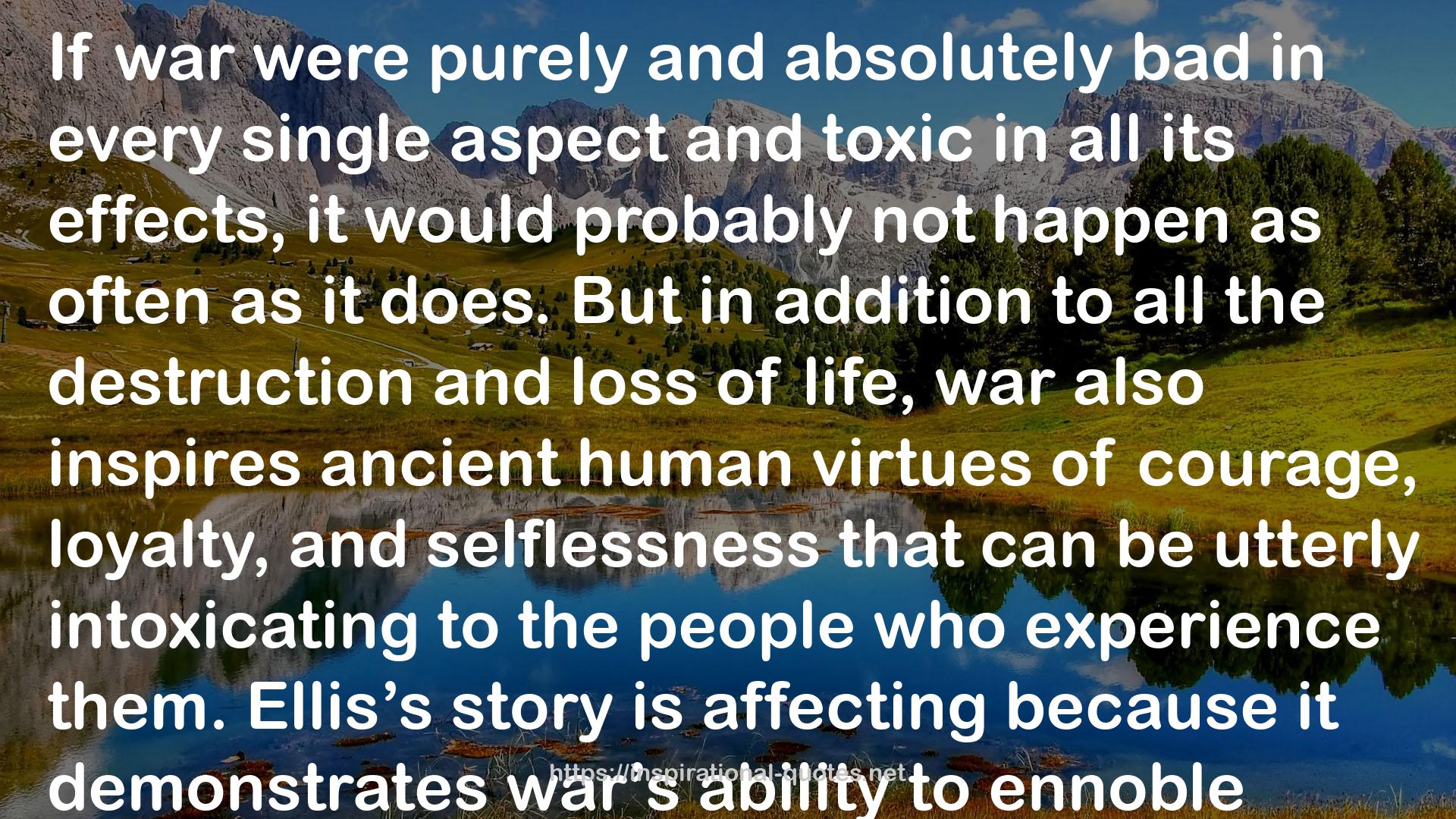" If war were purely and absolutely bad in every single aspect and toxic in all its effects, it would probably not happen as often as it does. But in addition to all the destruction and loss of life, war also inspires ancient human virtues of courage, loyalty, and selflessness that can be utterly intoxicating to the people who experience them. Ellis’s story is affecting because it demonstrates war’s ability to ennoble people rather than just debase them. The Iroquois Nation presumably understood the transformative power of war when they developed parallel systems of government that protected civilians from warriors and vice versa. Peacetime leaders, called sachems, were often chosen by women and had complete authority over the civil affairs of the tribe until war broke out. At that point war leaders took over, and their sole concern was the physical survival of the tribe. They were not concerned with justice or harmony or fairness, they were concerned only with defeating the enemy. If the enemy tried to negotiate an end to hostilities, however, it was the sachems, not the war leaders, who made the final decision. "
― Sebastian Junger , Tribe: On Homecoming and Belonging
